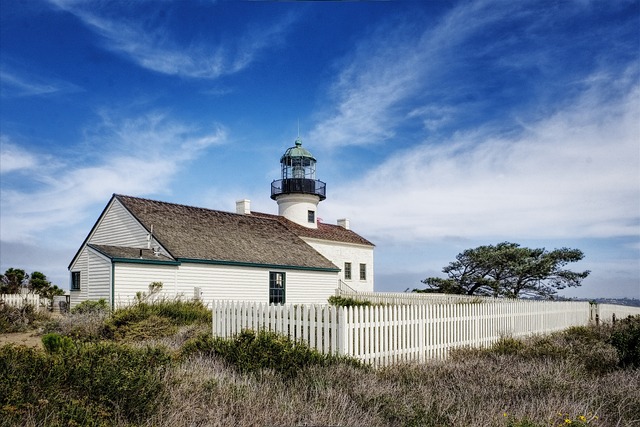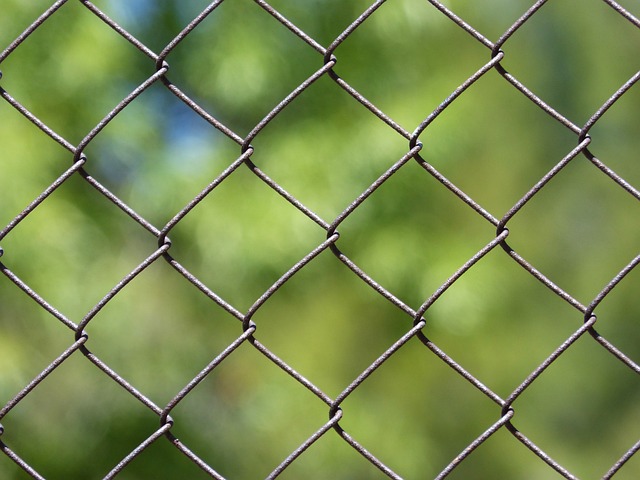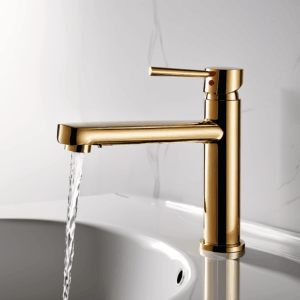Pool Fence Installation Houston: A Comprehensive Guide
Houston requires pool fences adhering to strict safety regulations for child and pet protection. Installation professionals follow guidelines with robust, weather-resistant materials like aluminum or vinyl. Homeowners have multiple options, considering cost, upkeep, and aesthetic preferences. Correc…….

Houston requires pool fences adhering to strict safety regulations for child and pet protection. Installation professionals follow guidelines with robust, weather-resistant materials like aluminum or vinyl. Homeowners have multiple options, considering cost, upkeep, and aesthetic preferences. Correct installation involves measuring, digging post holes, attaching panels, and securing gates with locks. Avoiding common mistakes ensures compliance, safety, and prevents legal issues. Leveraging local expertise for fence installation benefits from code knowledge, tailored solutions, quality materials, and skilled labor.
“In Houston, ensuring pool safety is paramount, especially with young children and pets around. This article guides you through the essential aspects of pool fencing, catering to both safety regulations and aesthetic preferences. We’ll explore the critical process of installing a secure fence, from understanding local rules to selecting durable materials. Learn about common pitfalls to avoid and tap into Houston’s expert resources for efficient, compliant fence installation.”
- Understanding Safety Regulations for Pool Fences in Houston
- Choosing the Right Fence Material and Style for Your Pool Area
- The Installation Process: Step-by-Step Guide for Homeowners
- Common Mistakes to Avoid During Pool Fence Installation
- Local Experts and Resources for Efficient Fence Installation
Understanding Safety Regulations for Pool Fences in Houston

In Houston, pool fencing is subject to specific safety regulations aimed at protecting both residents and visitors from potential hazards. When considering a fence installation Houston residents should be aware of these guidelines set forth by local authorities. The primary objective is to prevent accidental falls into pools, ensuring the safety of children and pets.
Fencing must adhere to certain height requirements, typically exceeding 4 feet, with additional safety features like self-closing and locking gates. Installation professionals in Houston are well-versed in these regulations, utilizing suitable materials and methods to meet or exceed standards. This includes selecting robust fence designs that withstand local weather conditions while maintaining integrity and stability.
Choosing the Right Fence Material and Style for Your Pool Area

When it comes to pool fencing, Houston homeowners have a variety of options to choose from. The right material and style should blend aesthetics with safety, ensuring your pool area is secure and inviting. Aluminum fences are a popular choice for their durability, low maintenance, and ability to withstand harsh weather conditions without rusting or corroding. They come in various styles, from sleek, modern designs to traditional, classic looks, allowing you to complement your home’s architecture.
On the other hand, vinyl fencing offers an affordable, low-maintenance option with a wide range of colors and patterns available. These fences are resistant to fading, cracking, and warping, making them a reliable choice for pool enclosures. For a more natural look, wood fences can enhance the beauty of your outdoor space while providing privacy and security. When selecting a fence material, consider factors like cost, durability, maintenance requirements, and how well it aligns with your personal style and the overall design of your pool area.
The Installation Process: Step-by-Step Guide for Homeowners

Installing pool fencing is a crucial step in ensuring your home complies with safety regulations, especially if you have a swimming pool or spa. Here’s a simple guide for homeowners looking to install pool fencing in Houston.
1. Measure and Plan: Start by measuring the perimeter of your pool area accurately. This will help you determine the exact amount of fencing needed. Consider local building codes and regulations to ensure the fence meets the required height and safety standards. Create a plan, including any gates or entry points, keeping accessibility in mind for maintenance.
2. Select the Right Fence Material: Common options include wood, vinyl, or aluminum. In Houston’s climate, durable materials like vinyl or treated wood are ideal choices. Ensure the material chosen aligns with your aesthetic preferences and budget.
3. Install Posts and Rails: Dig holes for the fence posts according to your measurements. Set the posts in place, ensuring they’re level and secure. Install the rails, following manufacturer instructions. Use appropriate brackets and hardware to connect the rails to the posts.
4. Attach Panels or Mesh: Secure fencing panels to the rails using screws or nails designed for the specific material. For mesh fences, follow the manufacturer’s guidelines for spacing and attachment. Make sure there are no gaps that could pose a risk.
5. Add Gates and Locks: Install gates at the primary entry points, ensuring they open outward and close securely. Fit child-safety locks or latches to prevent unauthorized access. Regularly test the mechanism to ensure it functions properly.
Common Mistakes to Avoid During Pool Fence Installation

When installing a pool fence in Houston, there are several common mistakes that homeowners often make which can lead to costly repairs or even legal issues. One of the primary errors is neglecting to check and adhere to local building codes and safety regulations. Pool fencing is not just about aesthetics; it’s a crucial barrier to protect both children and pets from drowning accidents. Always ensure the fence meets the required height, strength, and placement standards set by Houston’s health and safety department.
Another mistake is selecting an unsuitable fence type or material. Different environments require different types of fencing. In Houston’s humid climate, for instance, opt for rust-resistant, weatherproof materials like aluminum or vinyl rather than wood which can rot or corrode over time. Additionally, avoid installing fences that aren’t properly secured to the ground or to existing structures. A sturdy, secure fence installation is vital to prevent tipping or damage during storms or high winds. Regular maintenance and inspections are also overlooked but crucial aspects of pool fencing. Keep the fence clean, paint it if necessary, and check for any signs of wear or damage to ensure its longevity and safety.
Local Experts and Resources for Efficient Fence Installation

When it comes to pool fencing in Houston, local expertise is invaluable. With a wealth of knowledge about building codes and safety regulations specific to the region, professionals in this field can guide homeowners through the process, ensuring compliance from the start. Houston’s diverse neighborhoods present unique challenges and opportunities for fence installation; experts are well-versed in navigating these differences, providing tailored solutions that both meet safety standards and complement local aesthetics.
Local resources offer a range of benefits, from access to high-quality materials sourced closer to home to connections with skilled labor forces familiar with the area. Homeowners can leverage these advantages for efficient fence installation, minimizing delays and potential red tape often associated with out-of-town contractors. By leveraging local expertise and resources, residents in Houston can enhance pool safety while contributing to their community’s unique character.
When installing a pool fence in Houston, adhering to safety regulations is paramount. By understanding local requirements, selecting suitable materials and styles, and following a step-by-step installation guide, you can ensure your pool area is both secure and aesthetically pleasing. Avoiding common mistakes and leveraging local experts will further streamline the process. For effective and compliant fence installation in Houston, consult the resources mentioned throughout this article.







